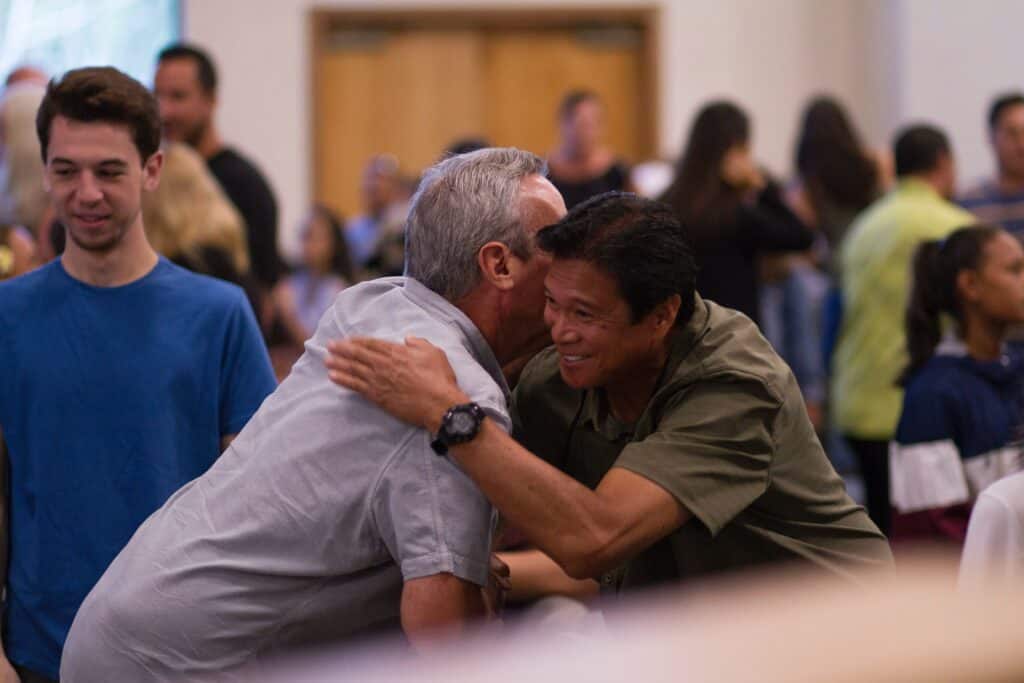Responding to Needs in Your Community

Author: Faith in Later Life
“Pay careful attention to yourselves and to all the flock, in which the Holy Spirit has made you overseers, to care for the church of God, which he obtained with His own blood.” – Acts 20:28
We recently had the pleasure of speaking with Theresa, a Salvation Army officer, and also a Faith in Later Life Church Champion. Theresa kindly took some time out of her busy schedule to speak to us about the work she is doing in her local church. The Salvation Army is a Christian church first and foremost, but they are also a registered charity. This means that Theresa is the minister of her church first, so she deals with all the things vicars deal with including working with organisations across the town supporting groups for the homeless, the elderly, the disabled, and children. In Theresa’s words, “we respond to a need as there is a need within the community we work.”
One of the most significant struggles Theresa has come across when talking to the older people in her community is that of loneliness. “Older people are just so lonely,” she shared with us, “I have been out this morning and visited a lady who has mental health issues, as well as a physical disability, and she said her cleaner came last week but that was the last time she had seen anybody.”
Combatting this issue was made even more difficult, because when we spoke to Theresa she had just taken up her new position and had done so during the Coronavirus. Theresa had to find ways to get to know her new community and what their various needs were despite government restrictions, which meant all normal activities had been put on hold. Theresa lamented, ““we don’t have any of the mother or toddler groups, church worship, prayer meetings, or over sixties groups running because we aren’t allowed to meet with so many people.” To actively get to know her new community she made sure to call each member of her congregation and visit as many people as she could through doorstep or garden visits. These meetings were a huge blessing to Theresa because they allowed her to transform a restriction into an opportunity and spend one to one time with the older people in her congregation.
Though we’re no longer in the “Covid-Era” and we’re not living through major restrictions, it’s still important to remember the lessons we’ve learned over the past few years. Whilst many of us struggled throughout the pandemic, I’ve spoken to many people who found it easier to socialise because their friends and family were more intentional with meeting and chatting with them one on one. For the housebound, introverts, and many older people who don’t like larger groups and gatherings, we ought not to forget to continue to call and visit, even though our own lives might be free and open once again.
Theresa told us how “even a wave through the window was enough to show that I had made time to come and see them. I am doing what I can within the constraints of what I know and what the government advises. At the end of the day, it’s about relationship building, knowing who they are and remembering who they are that makes all the difference.”
Over the years of working in churches, Theresa has seen God move in so many remarkable ways. She loves watching how God encourages intergenerational love. One story Theresa shared with us was about an older lady in her congregation who was on her own after her husband had passed away. She was very lonely, and her confidence had shrunk significantly since she had been left alone. Seeing this, Theresa knew she could help. Theresa kindly approached a family at the church; made up of a loving grandma who brought her grandchildren to the Sunday service, and asked if they could befriend an older lady seeking companionship. The grandma, who was much younger than the lady, was thrilled to offer her friendship. Within a short period of time, the lady was able to form meaningful connections with the grandma, her grandchildren, and eventually the whole family. They extended an invitation for her to join them for Sunday lunch every week and welcomed her into their home on weekends. Through this supportive network of caring individuals, the lady was able to reconnect with her community and feel valued for who she was, which ultimately lifted her out of loneliness and into the embrace of God’s love.
Finally, Theresa shared that the best way she has found to connect with and empower older people is simply to listen. She shared how it is a privilege to sit down and hear peoples’ life stories. They will share about getting married, raising a family, work adventures, travel, the war, all sorts of incredible things! And simply by sitting down and listening, you get to be a part of that and share in their wisdom. “It is a unique position to be in and one that is such a blessing.”
As it says in the Psalms, “the righteous flourish like the palm tree and grow like a cedar in Lebanon. They are planted in the house of the Lord; they flourish in the courts of our God. They still bear fruit in old age; they are ever full of sap and green.” – Psalm 92:12-14
Here are some fantastic takeaways from Theresa’s story and shared wisdom:
Respond to needs in your community: As Theresa mentioned, one of the most important things a church can do is to respond to the needs of the community it serves. You can work with local organisations and government agencies to identify areas of need and then provide support in a way that aligns with your values and resources.
Combat loneliness: As Theresa discovered, many older people in the community experience loneliness, which can have a significant impact on their wellbeing. You can organise regular phone calls and visits to provide companionship and emotional support to people who are isolated. You can also consider befriending people in your community who are experiencing loneliness and inviting them to be part of your social circles.
Listen to people’s stories: One of the most meaningful ways that your church can connect with people in your community is by listening to their stories. By showing interest in people’s lives and experiences, you can build relationships with community members and learn more about their needs and perspectives. This can help your church tailor its activities and programs to better serve the community.
